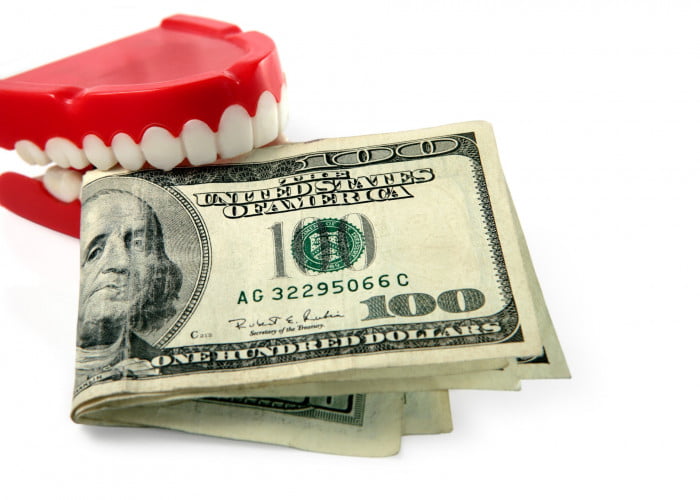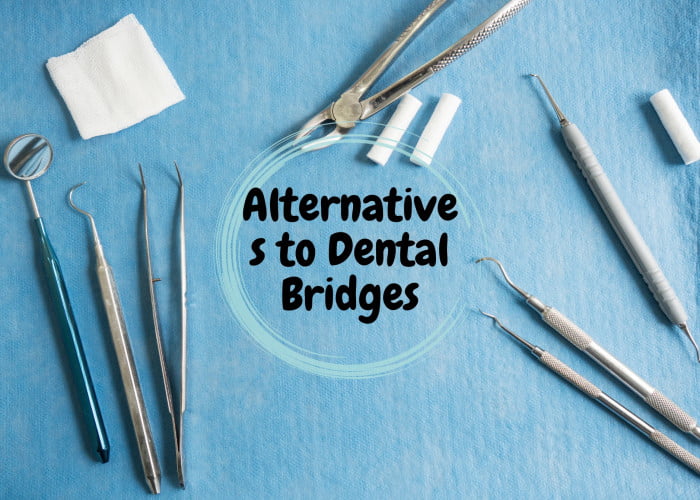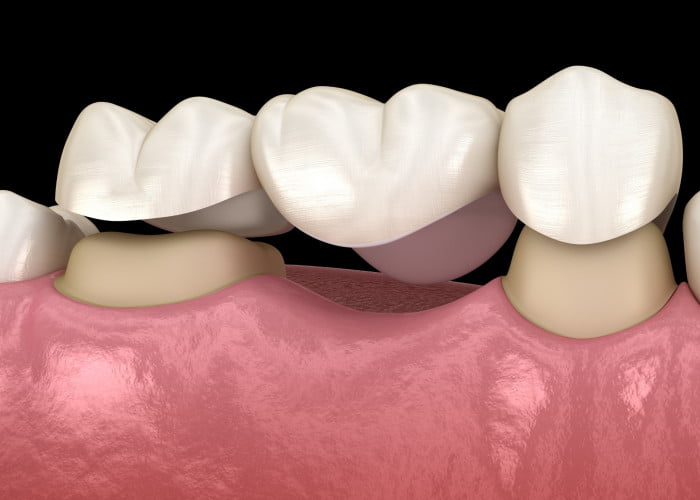Tooth bridges are a popular solution for missing teeth, but they can come with a significant cost. Tooth bridge cost can vary depending on a range of factors, including the type of bridge, the materials used, and the location of the dental practice. In this article, we explore the various factors that can impact the tooth bridges cost and provide guidance on how to make an informed decision about your dental care.
What is a Dental Bridge?
A dental bridge is a restorative dental device used to replace one or more missing teeth. It consists of an artificial tooth or teeth, known as pontics, that are anchored in place by dental crowns on the adjacent natural teeth or dental implants. Dental bridges help restore the appearance of a complete smile, improve oral functionality, and prevent dental issues that may arise from gaps left by missing teeth.
Are There Different Types of Dental Bridges?
Yes, there are different types of dental bridges available, including:
- Traditional Dental Bridge: This is the most common type of dental bridge, where the pontic or pontics are supported by dental crowns placed on the adjacent natural teeth.
- Cantilever Dental Bridge: In situations where there is only one adjacent tooth next to the gap, a cantilever bridge can be used. It involves the placement of a pontic supported by a dental crown on a single adjacent tooth.
- Maryland Dental Bridge: Also known as a resin-bonded bridge, this type of bridge uses a metal or porcelain framework that is bonded to the backs of adjacent teeth using resin cement.
- Implant-Supported Dental Bridge: In cases where multiple adjacent teeth are missing, dental implants can be used to support the bridge. Implants are surgically placed in the jawbone and act as anchors for the bridge.
See more: Do whitening strips work?
What are the Requirements for Getting a Dental Bridge?
To be a candidate for a dental bridge, certain requirements must be met. These include:
- Sufficient Tooth Support: The adjacent teeth on either side of the gap must have enough healthy structure to support the dental crowns that will hold the bridge in place.
- Good Oral Health: It is important to have a healthy mouth, free from gum disease, tooth decay, or other oral health issues that could compromise the success of the dental bridge.
- Adequate Jawbone Density: If dental implants are being used to support the bridge, there must be enough jawbone density to support the implant placement.
How Much Does a Dental Bridge Typically Cost?
When it comes to dental bridges, the cost can vary depending on a number of factors. The type of bridge, the materials used, and the location of the dental practice can all affect the overall cost. On average, a traditional dental bridge can cost between $2,000 and $5,000 per tooth replaced.
-

Dental Bridge Typically Cost
What Other Costs Might Go Along with Getting a Dental Bridge?
In addition to the cost of the dental bridge itself, there may be other associated costs, such as:
- Dental Impressions: Impressions of your teeth may need to be taken to ensure the bridge fits properly. These impressions may incur an additional cost.
- Preparatory Procedures: In some cases, the adjacent teeth may require dental treatments like fillings or root canals before they can support the bridge. These procedures may have their own costs.
- Temporary Bridge: While the permanent bridge is being fabricated, a temporary bridge may be placed. The temporary bridge may have its own cost, separate from the final bridge.
-

What Other Costs Might Go Along with Getting a Dental Bridge
Does Insurance Cover Dental Bridges?
Our insurance coordinators are happy to help in any way they can to help you know exactly what to expect. We may call the insurance company to verify your coverage and explain how your specific dental benefits apply to the cost of treatment.
If we are outside of your insurance network, we will be happy to complete the paperwork and submit a claim for reimbursement on your behalf. Any refunds will be sent directly to you.
-

Insurance Cover Dental Bridges
How Much Does a Dental Bridge Cost with Insurance?
The cost of a dental bridge with insurance coverage can vary depending on your specific insurance plan and its coverage details. Dental insurance plans typically cover a portion of the cost of dental treatments, including dental bridges. However, it’s important to note that each insurance plan has its own terms, limitations, and reimbursement rates.
In general, dental insurance plans may cover a percentage of the cost of a dental bridge, typically ranging from 50% to 80% of the total cost. The remaining portion, known as the out-of-pocket expense, would be the responsibility of the patient.
-

How Much Does a Dental Bridge Cost with Insurance?
3 Ways To Finance Dental Work That Aren’t Insurance
If you’re concerned about the cost of a dental bridge and don’t have sufficient insurance coverage, there are alternative ways to finance dental work. Consider the following options:
- Dental Financing Plans: Many dental offices offer financing plans specifically designed to help patients manage the cost of dental treatments. These plans allow you to spread out the payments over a period of time, often with little to no interest. Discuss with your dentist to see if they offer such financing options.
- Health Savings Account (HSA) or Flexible Spending Account (FSA): If you have an HSA or FSA, you can use the funds to pay for dental treatments, including dental bridges. These accounts allow you to contribute pre-tax money, which can then be used for eligible medical expenses. Check with your employer or healthcare provider for more information on utilizing these accounts for dental expenses.
- Personal Loans or Credit Cards: Another option is to explore personal loans or credit cards to finance your dental bridge. Some financial institutions offer specialized healthcare loans with flexible repayment terms. However, it’s important to carefully consider the interest rates and repayment terms before choosing this option.
-

3 Ways To Finance Dental Work That Aren’t Insurance
Alternatives to Dental Bridges
While bridges are a popular and effective solution to replace missing teeth, they may not be right for everyone. Here are some alternative options for reference:
- Dental Implants: Dental implants are a permanent and highly durable solution for replacing missing teeth. They involve the surgical placement of titanium implants in the jawbone, which act as anchors for artificial teeth. Implants offer a more natural look and feel compared to bridges and can last a lifetime with proper care.
- Removable Partial Dentures: Partial dentures are removable appliances that replace one or more missing teeth. They are held in place by clasps that attach to the surrounding natural teeth. While not as stable as dental bridges or implants, they provide an affordable and non-invasive option for tooth replacement.
- Resin-Bonded Bridges: Also known as “Maryland bridges,” resin-bonded bridges are a conservative alternative to traditional bridges. They involve the bonding of artificial teeth to the adjacent natural teeth using a metal or porcelain framework. This option is suitable when the adjacent teeth have minimal or no dental work done.
- Dental Flipper: A dental flipper is a temporary, removable option for replacing a missing tooth. It consists of a retainer-like base with an artificial tooth attached. While not as long-lasting or stable as other alternatives, dental flippers are affordable and can serve as a temporary solution while considering more permanent options.
-

Alternatives to Dental Bridges
Contact Us
If you have further questions about dental bridges, alternative options, or financing dental work, our team is here to help. Contact us today to schedule a consultation or discuss your specific dental needs. We are committed to providing comprehensive dental care and helping you achieve a healthy and confident smile.
In conclusion
The cost of a dental bridge can vary depending on the type of bridge, materials used, and insurance coverage.It’s important to consult with a dentist to determine the most suitable treatment options for your individual case and to check with your insurance provider to see what your plan covers and what your out-of-pocket expenses will be.



